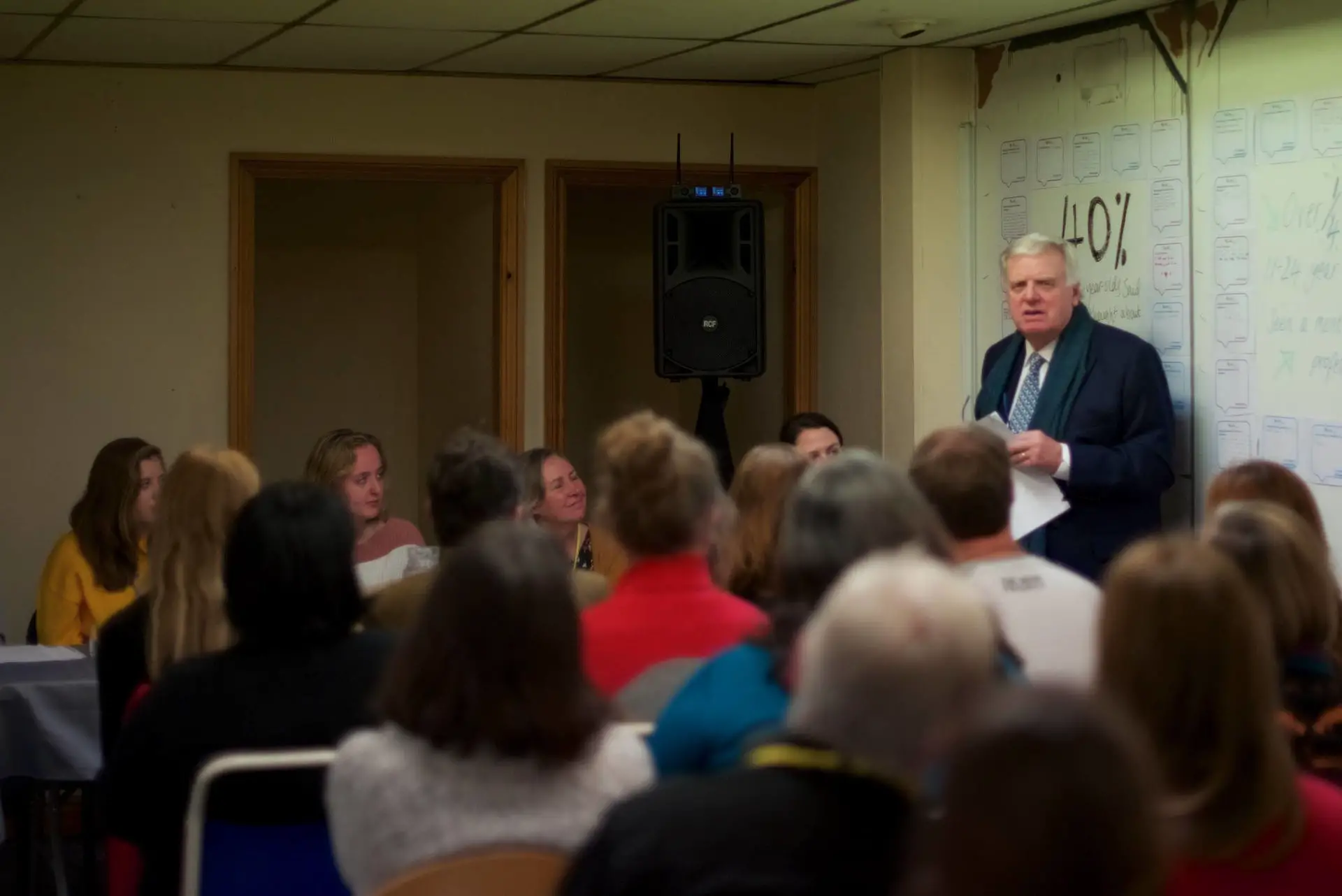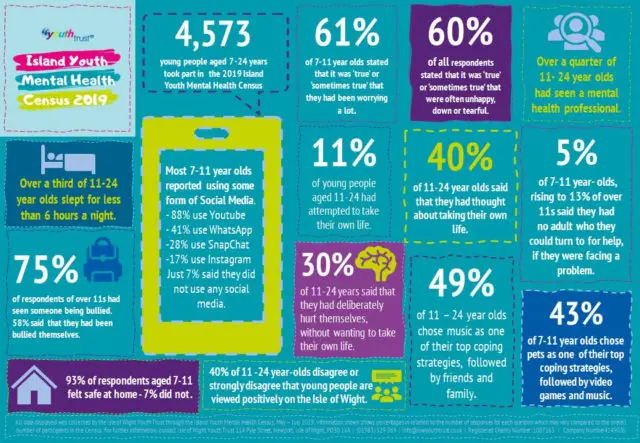Last Friday independent local charity, the Isle of Wight Youth Trust released finding of their second Island Youth Mental Health Census, which provided data on the views and experiences of children and young people across the Island.
The survey, which was designed with input from young people, received over 4,500 responses, being completed by approximately 15% of 7-24 year olds on the Island.
Mental health crisis
Findings from the census revealed that the mental health crisis facing young people across the country is being felt acutely on the Isle of Wight.
Key findings included:
- 61% of 7 -11-year olds and 72% of 11- 24-year olds said it was true or sometimes true that they had been worrying a lot.
- 70% of 7 -11-year olds and 62% of 11-24-year olds said it was true or sometimes true that it had been hard to get to sleep or stay asleep.
- 67% of 7 -11-year olds and 65% of 11-24-year olds said it was true or sometimes true that they get very angry and often lose their temper.
- 61% of 7 -11-year olds and 60 of 11-24-year olds said it was true or sometimes true that they were often unhappy, down or tearful.
- 75% of 11-24 year olds had seen someone being bullied and 58% had been bullied.
- 40% of 11-24-year olds had thought about taking their own life, even if they didn’t think they would act on those thoughts.
- 30% of 11-24-year olds reported that they had deliberately hurt themselves, without wanting to take their own life.
- 11% of 11-24-year olds reported that they had attempted to take their own life.
- 5% of 7-11 year- olds, rising to 13% of over 11s said they had no adult who they could turn to for help, if they were facing a problem.
Cannock: Worrying picture of mental health and emotional wellbeing
Youth Trust CEO, Clare Cannock said the census findings were crucial in understanding the complex needs of young Islanders.
“Overall, our findings have painted a worrying picture of the mental health and emotional wellbeing for our young people. Through our work supporting and listening to young Islanders, we are aware of substantial gaps in statutory service provision and community need, which will require joined-up working and further funding to address.
“At a time when there is such a clear need for increased services and earlier intervention, we struggle to secure funding to provide much needed mental health support for our young people. We deliver our under 18’s counselling support under contract from the NHS and have worked tirelessly to secure funding for other key services through grants and community fundraising, including for our service for young people aged 18-25 and group work.
“As we move into the new year, the Youth Trust will focus on solutions. We will work with our young people to further develop our services and use these findings as a launch pad to explore opportunities to collaborate with other providers to address some of the more complex issues our young people are facing. Our aim is to deliver relevant, timely and easy to access support for our young people, by expanding our current provision to promote wellbeing before, during and after any emotional difficulties.
Lord Grade: “An exceptional piece of work”
Youth Trust Patron, Lord Michael Grade, who helped launch the findings added,
“The Isle of Wight Youth Trust champions the voice of young people. This Census is an exceptional piece of work from a local charity, who identified the need to listen to young Islanders and gather robust data. The results are confronting and will hopefully lead to community-wide action to improve support our children and young people’s mental health.”
Cannock: “Isle of Wight as the worst in the country for bullying”
In response to the Census Findings, Clare further added,
“Sadly, almost 60% of 11-24 year olds had experienced bullying. This supports findings of our 2017 Census and the 2015 ‘What about YOUth’ survey, which labelled the Isle of Wight as the worst in the country for bullying.
“While over a quarter of 11-24 years olds having seen a mental health professional, this was less than the number who reported deliberately hurting themselves. This is obviously concerning and raises questions about how we can better equip our young people with helpful and safe coping mechanisms.”
26% increase in the number of one-to-one counselling
She said,
“In response to our 2017 Census, the Youth Trust significantly expanded our offer. We introduced a new clinical model, group work and embedded youth voice within our organisation by establishing our Youth Mental Health Taskforce. These changes have meant that we are supporting more young people than ever before.
“Last year we saw a 26% increase in the number of one-to-one counselling sessions we delivered compared to the previous year. Last month alone, 133 young people turned to the Youth Trust for support.”
Image: Lord Grade addressing young people as patron of Isle of Wight Youth Trust






